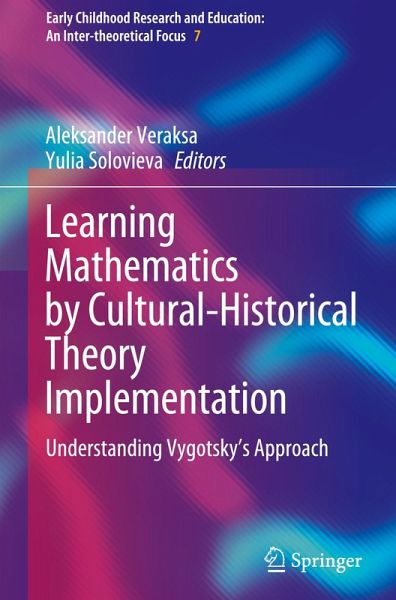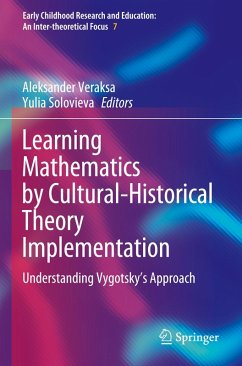
Learning Mathematics by Cultural-Historical Theory Implementation
Understanding Vygotsky's Approach
Herausgegeben: Veraksa, Aleksander; Solovieva, Yulia

PAYBACK Punkte
53 °P sammeln!
This book is devoted to the topic of mathematical skills development, which was the focus of Vygotsky's cultural-historical theory. It offers descriptions of studies of development of visual modelling in children and its use for educational purposes. Special attention is given to concrete examples of Vygotsky's work and educational programs that makes it possible to replicate the results in various settings.The work also addresses conditions, means and predictors of mathematical concepts acquisition at different ages and educational levels (preschool, primary and middle secondary education). T...
This book is devoted to the topic of mathematical skills development, which was the focus of Vygotsky's cultural-historical theory. It offers descriptions of studies of development of visual modelling in children and its use for educational purposes. Special attention is given to concrete examples of Vygotsky's work and educational programs that makes it possible to replicate the results in various settings.
The work also addresses conditions, means and predictors of mathematical concepts acquisition at different ages and educational levels (preschool, primary and middle secondary education). The book shows theoretical solidity of cultural-historical approach and experience of its implementation in teaching of mathematical knowledge in childhood and the study of the process of psychological development.
The work also addresses conditions, means and predictors of mathematical concepts acquisition at different ages and educational levels (preschool, primary and middle secondary education). The book shows theoretical solidity of cultural-historical approach and experience of its implementation in teaching of mathematical knowledge in childhood and the study of the process of psychological development.












